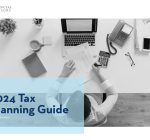Understanding the tax implications of investing in bonds
Diversifying your investment portfolio and earning a steady stream of income can be achieved by investing in bonds. However, being aware of the tax implications of investing in bonds is crucial to making informed investment decisions and reducing your tax liability. This blog post covers the basics of bond taxation and provides guidance for navigating the tax code as a bond investor.
When investing in bonds, you are loaning money to a government entity or organization in exchange for a fixed interest rate. The interest payments you receive from bonds are subject to federal taxes as ordinary income and should be reported on your tax return. State and local taxes may also apply to your bond income, but the tax treatment of bond income varies by state.
To minimize your tax liability as a bond investor, investing in tax-exempt bonds, or municipal bonds, may be a wise choice. Municipal bonds are issued by state and local governments and are exempt from federal income taxes. They may also be exempt from state and local taxes if issued by your state of residence. When comparing taxable bonds to tax-exempt bonds, it’s important to consider the after-tax yield of each investment, particularly if you’re in a high tax bracket.
Investing in bond funds and ETFs can also offer diversification and professional management, but the tax treatment of these investments can be more complex. Capital gains and losses from buying and selling bonds within the portfolio may be passed on to investors, and the tax treatment of the investment may depend on the types of bonds included in the portfolio.
In conclusion, investing in bonds can be a valuable addition to your investment portfolio, but it’s crucial to understand the tax implications of these investments. Consulting with a tax professional and reviewing your state’s tax code can help you make informed investment decisions that minimize your tax liability and maximize your after-tax return on investment.





